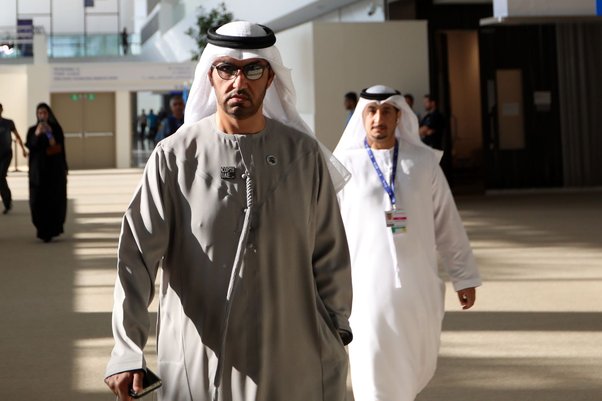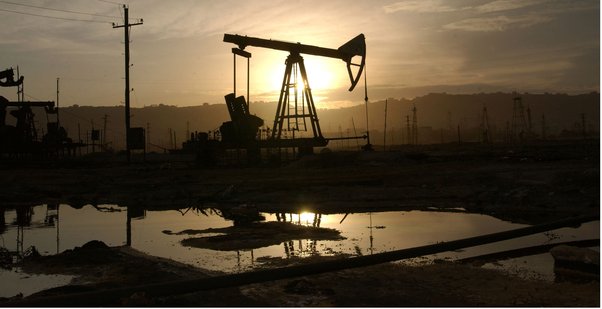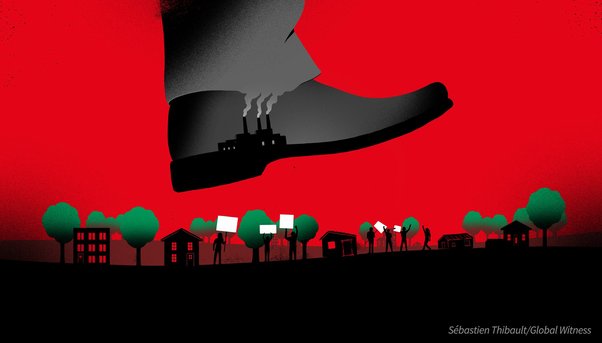BP and its project partners have transferred $35 billion-worth of oil and gas production to Azerbaijan’s government since 2020, the year that war broke out in the disputed territory of Nagorno-Karabakh.
The sum is more than four times Azerbaijan’s military spending during this period, as new analysis by Global Witness highlights the ‘dictatorship’s’ economic reliance on the British company’s fossil fuel operations.
BP – Azerbaijan’s largest foreign investor – operates and holds the biggest share of two giant oil and gas extraction projects in the country, which it started developing in the 1990s. BP’s current project partners include Exxon, Equinor and Lukoil.
BP’s contracts with the government require it to transfer a proportion of the projects’ oil and gas production to the state, whose share from January 2020 to December 2022 was valued at $34.9 billion, according to BP’s financial disclosures.
Azerbaijan’s defence budget was $7.9 billion over the same period, according to the Stockholm International Peace Research Institute. In 2022, Azerbaijan was the world’s eighth biggest military spender as a share of GDP.
On 19th September 2023, Azerbaijan launched a large-scale military offensive in Nagorno-Karabakh, a contested region with Armenia. The attack forced over 100,000 people to flee the territory – almost the entire ethnic Armenian population – and prompted the European Parliament to state this amounted to ethnic cleansing.
On 20th September, one day after Azerbaijan began pounding Nagorno-Karabakh with heavy artillery fire, BP sent a senior delegation – including chair of the board Helge Lund and former CEO Lord Browne – to Baku to celebrate the 100th anniversary of former President Heydar Aliyev’s birth, and to reaffirm BP’s “commitment to a long-term partnership” with Azerbaijan.
The decades-long conflict in Nagorno-Karabakh flared up in September 2020. Thousands of combatants were killed on both sides before a ceasefire was agreed six weeks later. Skirmishes continued and in December 2022, Azerbaijan blocked the only road from Armenia to Nagorno-Karabakh, choking supplies of food, fuel and medicines and creating a humanitarian crisis in the region.
BP pays a share of its projects’ oil and gas production to the government as a condition of operating in Azerbaijan. In 2022 alone, the government’s share of production was $19.3 billion, more than the country’s entire public spending budget of $17.6 billion that year, according to UNICEF.
While BP’s oil and gas fields are hundreds of kilometres from Nagorno-Karabakh, the company seems to have few qualms about entering Azerbaijan’s disputed territories. In June 2021, BP signed an agreement with the government to build a 240-megawatt solar farm in Jabrayil, a district within the 2020 war zone which Azerbaijan captured in October that year.
Speaking in Shush in June 2022, a city in Nagorno-Karabakh that was also seized by Azerbaijan in 2020, BP’s regional president said that Azerbaijan’s “liberated territories” have “some of the country’s best solar and geothermal resources”, which makes them a “perfect opportunity for a fully net zero system.”
UN guidelines give companies operating in conflict-affected regions a heightened responsibility to demonstrate their commitment to human rights. Yet in September 2023, BP turned down a request to sign a joint letter from global business leaders to Azerbaijan’s president Ilham Aliyev, urging him to protect human rights for all people in the conflict zone.
BP began its partnership with Azerbaijan’s government – one of the world’s most repressive and corrupt regimes – in the 1990s, with an agreement to develop one of Azerbaijan’s largest oil fields, a deal dubbed ‘contract of the century’.
Responding to a request from Global Witness to comment on its operations in Azerbaijan, BP stated that it supports a peaceful settlement to the conflict, and that it remains committed to operating a safe, reliable, and resilient energy business in the region. BP also said that it has a policy to conduct environmental and social impact assessments, including human rights aspects, for projects in conflict-affected regions.
Azerbaijan, its government, nor BP or any of the other entities with which BP is engaged in the oil trade there are subject to sanctions over the Nagorno-Karabakh dispute.
Dominic Eagleton, senior campaigner at Global Witness, said:
“BP’s long-standing partnership with the Aliyev ‘dictatorship’ has funded Azerbaijan’s militarization and aggression against Armenia. BP has been happy to keep drilling, having learned nothing from the historic mistake it made in Russia. Funding violent dictators is always a bad strategy.”
Notes
BP is the operator and holds a 30.37% share of the Azeri-Chirag-Deepwater-Gunashli oilfield in the Azerbaijan sector of the Caspian Sea. The remaining participating interests are: SOCAR (25%), Molgroup (9.57%), INPEX (9.31%), Equinor (7.27%), ExxonMobil (6.79%), TP (5.73%), ITOCHU (3.65%), and ONGC Videsh (2.31%).
BP is the operator and has a 29.99% share of the Shah Deniz gas-condensate field, also in the Azerbaijan sector of the Caspian Sea. The remaining participating interests are: Southern Gas Corridor (21.02%), Lukoil (19.99%), TP (19%), and NYCO (10%).
BP’s Payments to Governments reports are available here, under ‘Regulatory information’: https://www.bp.com/en/global/corporate/sustainability/reporting-centre-and-archive/. The figure for Azerbaijan’s military expenditure is taken from the Stockholm International Peace Research Institute’s (SIPRI’s) Military Expenditure Database: https://www.sipri.org/databases/milex. SIPRI research shows Azerbaijan was the world’s eighth largest military spender as a share of GDP (page 10): https://www.sipri.org/sites/default/files/2023-04/2304_fs_milex_2022.pdf
European Parliament resolution, 5 October 2023: https://www.europarl.europa.eu/doceo/document/TA-9-2023-0356_EN.html
The first Nagorno-Karabakh war took place from 1988 to 1994. While it remained internationally recognised as part of Azerbaijan, the conflict left Nagorno-Karabakh de facto independent, but with close ties to and heavily reliant on Armenia. Hundreds of thousands of Azerbaijanis were expelled from the region as a result of the war, which also displaced large numbers of Armenians living in Azerbaijan. A fragile truce ensued, albeit with intermittent clashes. The unresolved conflict escalated into a full-scale war in September 2020, leading to a reported 7,000 soldiers and 170 civilians being killed, with many more wounded. Azerbaijan regained many of its territories before Russia brokered a ceasefire in November 2020, which brought 44 days of fighting to an end.


